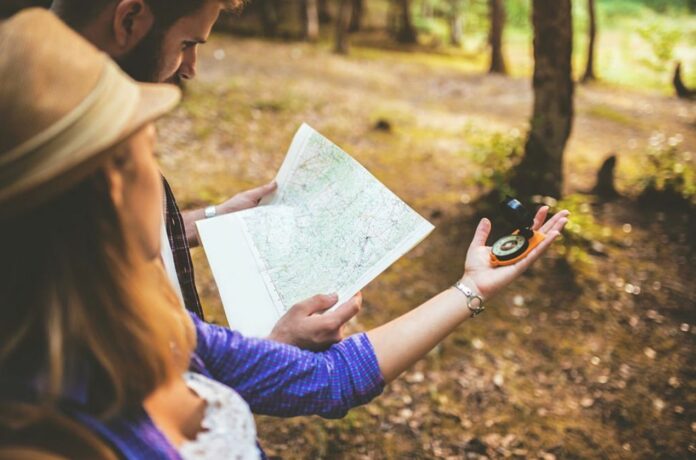New research from McMaster University suggests that the sport of orienteering, which requires physical health, the ability to find your way around, and a good memory, could be used as an intervention or prevention methods to fight cognitive decline caused by dementia.
Scientists believe that the exercise-and-navigation hybrid sport of orienteering may activate regions of the brain critical to the survival skills of our prehistoric ancestors due to the combination of these two activities.
The brain underwent a process of evolution many thousands of years ago to create new neuronal connections in order to adapt to the hostile environment.
Modern conveniences like GPS applications and easily accessible food have reduced the need of certain brain processes formerly essential to existence. The findings of the study suggest it is a case of “use it or lose it.”
“Modern life may lack the specific cognitive and physical challenges the brain needs to thrive,” adds Jennifer Heisz, Canada Research Chair in Brain Health and Aging at McMaster University, who supervised the research. “In the absence of active navigation, we risk losing that neural architecture.”
Heisz brings up Alzheimer’s disease, where losing one’s sense of direction is among the illness’s initial signs and affects 50% of those who have it, even in its mildest form.
In the study, which came out today in the journal PLoS ONE, researchers asked healthy adults ages 18 to 87 with different levels of orienteering experience to fill out a questionnaire (none, intermediate, advanced and elite).
People who do orienteering say they have better spatial navigation skills and better memories. This suggests that adding wayfinding skills to regular workouts could be helpful over a lifetime.
“When it comes to brain training,” points out lead author Emma Waddington, “the physical and cognitive demands of orienteering have the potential to give you more bang for your buck compared to exercising only.”
The objective of orienteering is to discover a set of checkpoints while moving as swiftly as possible across new terrain while using just a map and compass.
The best athletes are able to switch their minds quickly between different mental tasks and make quick decisions as they move quickly across the terrain.
What sets this sport apart is the combination of navigating and quickly switching between different areas of the brain responsible for processing spatial information.
For instance, reading a map requires a third-person viewpoint in relation to the surroundings. As they run the course, orienteers must quickly figure out how this information applies to where they are in the environment.
Researchers say that GPS systems have made it so that people no longer need to know how to do this. Due to the fact that memory and spatial processing depend on overlapping brain structures, this may also have an impact on our ability to navigate as well as our overall capacity for memory and spatial processing.
Researchers say there are two easy ways to do more orienteering in everyday life: turn off your GPS and use a map to find your way when you travel, and give yourself a spatial challenge by running, walking, or riding your bike on a new route.
“Orienteering is very much a sport for life. You can often see participants spanning the ages of 6 to 86 years old engaged in orienteering,” highlights Waddington. “My long-term involvement in this sport has allowed me to understand the process behind learning navigational skills and I have been inspired to research the uniqueness of orienteering and the scientific significance this sport may have on the aging population.”
Image Credit: Getty
